Property Valuation in Kenya: Different Types of Valuation
Property valuation is the process of determining the true market value of an asset, whether tangible or intangible. It plays a critical role in real estate, business, insurance, taxation, and financial planning.
In Kenya, property valuation is conducted by registered valuers licensed under the Valuers Registration Board (VRB), guided by the Valuers Act (Cap 532) and International Valuation Standards (IVS). Professional practice is also overseen by the Institute of Surveyors of Kenya (ISK).
Here’s a detailed look at the different types of property valuation services available in Kenya.
1. Land Valuation
Determining the value of land is one of the most common forms of valuation. It’s needed for:
Buying and selling property
Securing mortgages
Stamp duty and taxation
Compensation during compulsory acquisition
Factors include location, size, zoning, and comparable market sales.
Methods applied:
Comparable Sales Method – comparing with recent sales in the area.
Investment/Income Approach – for income-generating land.
Residual Method – for development land, based on potential project value.
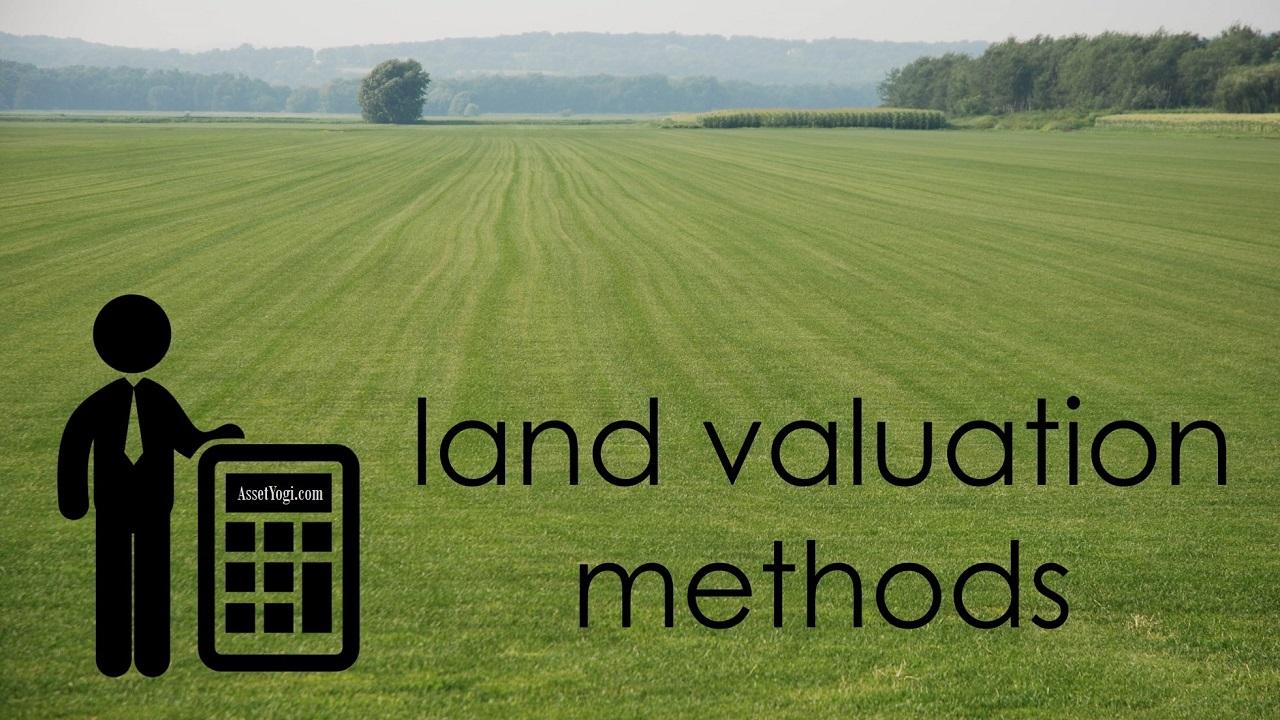
2. Plant, Machinery, and Equipment Valuation
Covers industrial machinery, construction equipment, hospital installations, and agricultural tools. Used for:
Insurance purposes
Securing loans
Company audits (IFRS compliance)
Asset management in mergers and acquisitions
Methods applied:
Cost Approach – replacement cost minus depreciation.
Market Comparison – where active resale markets exist.
Income Approach – for revenue-generating equipment (e.g., leased machinery).

3. Motor Vehicle Assessment
Establishes the market value of cars, trucks, buses, and other vehicles for:
Insurance underwriting and claims
Sale and purchase transactions
Fleet management
Loan collateral
Methods applied:
Market Comparison – checking similar models in the current market.
Cost Approach – adjusting manufacturer’s cost with depreciation.
Income Approach – for commercial vehicles generating revenue.
4. Asset Valuation
A broad category that combines both tangible and intangible assets. Asset valuation is essential for:
Balance sheet reporting
Risk assessment and insurance
Business restructuring
Inheritance and succession planning
Methods applied:
Book Value Method – from financial statements.
Market Value Approach – based on open market demand.
Replacement/Depreciated Cost – for plant and physical assets.
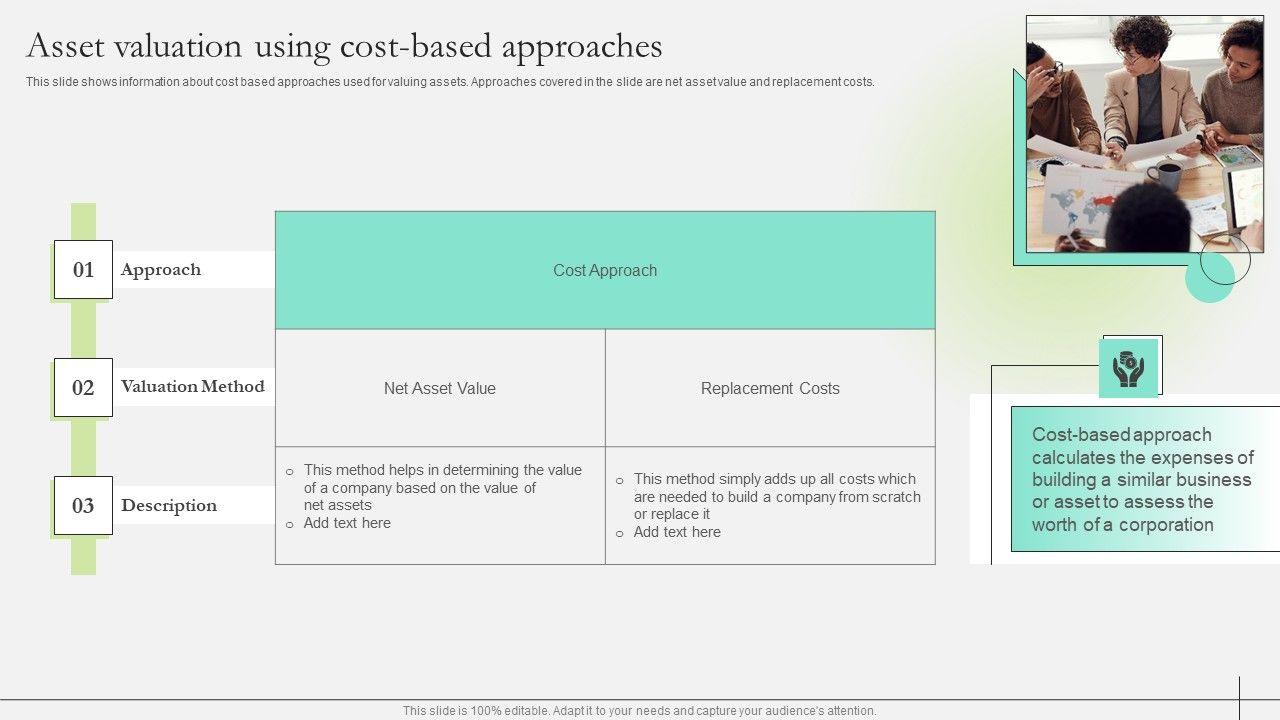
5. Business Valuation
Determines the overall worth of a business by analyzing both tangible assets and intangible factors such as goodwill and brand equity. Key for:
Mergers and acquisitions
Raising capital
Shareholding agreements
Succession and estate planning
Methods applied:
Discounted Cash Flow (DCF) – future earnings discounted to present value.
Earnings/Profit Multiples – applying industry multipliers.
Asset-Based Valuation – summing tangible and intangible asset values.
Market Approach – benchmarking against similar businesses.
6. Special Properties Valuation
These are unique properties requiring specialized valuation approaches, including:
Hotels and resorts
Petrol stations
Religious institutions
Hospitals and schools
Airports and seaports
Methods applied:
Income Capitalization – based on revenue streams.
Cost Approach – when income data is unavailable.
Specialist Methods – tailored to the type of property (e.g., occupancy rates for hotels).
7. Botanical Assets Valuation
Focused on agricultural and natural assets such as:
Timber plantations and forests
Coffee, tea, and sugar plantations
Orchards and vineyards
Commercial flower farms
This is critical for financing, insurance, and taxation.
Methods applied:
Income Approach – projected yields valued against current market prices.
Cost Approach – establishment and maintenance cost adjusted for growth.
Market Comparison – for assets with known local market values (e.g., cut timber).
8. Intellectual Property Valuation
Intellectual property (IP) has become one of the most valuable assets for modern businesses. This covers:
Trademarks, patents, and copyrights
Software and digital platforms
Brand reputation and goodwill
Proprietary business processes
Valuation is key in technology companies, creative industries, and M&A deals.
Methods applied:
Income Approach (Royalty Relief or DCF) – valuing projected cash flows.
Market Approach – benchmarking similar IP transactions.
Cost Approach – cost of developing a similar asset.
9. Artwork and Collectibles Valuation
Art, antiques, jewelry, and collectibles require professional valuation for:
Auctions and sales
Museum collections
Insurance cover
Estate planning and succession
Specialized expertise is applied due to rarity, provenance, and market trends.
Methods applied:
Market Comparison – auction and private sales benchmarks.
Replacement Cost – in case of loss (for insurance).
Expert Appraisal – specialist valuers assess rarity, provenance, and demand.
10. Homes, Houses, and Apartments Valuation
Residential valuation covers individual homes, townhouses, villas, and apartments. It is vital for:
Buying and selling homes
Mortgage financing
Property tax assessments
Insurance purposes
Valuers consider location, condition, neighborhood amenities, and demand in the housing market.
Methods applied:
Comparable Sales Method – most common for residential property.
Cost Approach – replacement cost minus depreciation.
Income Approach – for rental apartments and flats.
11. Buildings and Commercial Properties Valuation
This includes office blocks, shopping malls, industrial warehouses, and mixed-use developments. Such valuations support:
Leasing agreements
Investment planning
Loan security
Insurance and taxation
Methods applied:
Income Capitalization – rental income discounted to present value.
Comparable Sales – if similar buildings exist in the area.
Cost Approach – where construction cost is more reliable than market data.
12. Office Space Valuation
Office valuation is carried out to determine the market rent or sale value of spaces in commercial buildings. It’s crucial for:
Lease negotiations
Rent review
Corporate relocations
Investment analysis
Methods applied:
Rental Comparison Approach – comparing rent rates per square foot.
Income Capitalization – used in larger office complexes.
Cost Approach – for newly developed office blocks.
13. Rent Assessment and Rental Valuation
Rent assessment determines the fair rental value of a property, ensuring landlords and tenants operate under fair agreements. It helps in:
Reviewing and adjusting rent
Dispute resolution between landlords and tenants
Setting rental income for investment properties
Methods applied:
Comparable Rental Analysis – checking similar properties in the neighborhood.
Income Approach – for commercial properties with predictable returns.
Statutory/Regulated Rent Methods – where rent control laws apply.
Why Property Valuation is Important
Fair Pricing – Avoids overpayment or underselling
Financial Security – Assists in securing loans with the right collateral value
Compliance – Required for taxation, stamp duty, and regulatory filings
Insurance Accuracy – Prevents under- or over-insurance
Dispute Resolution – Provides independent assessments for courts or arbitration
Standards, Regulations, and Fees in Kenya
Legal Framework
The Valuers Act (Cap 532) regulates practice
VRB (Valuers Registration Board) licenses and oversees valuers
ISK (Institute of Surveyors of Kenya) enforces ethical and professional standards
Valuation Standards
Guided by International Valuation Standards (IVS)
Ensures consistency, transparency, and comparability globally
Valuation Fees
Prescribed under the Scale of Fees (Legal Notice No. 32 of 2011)
Fees vary depending on property type, purpose of valuation, and complexity
For example:
General property valuation: percentage of property value
Motor vehicle valuation: fixed fee range
Business valuation: negotiated based on scope
Property valuation in Kenya covers a wide range of assets — from land, buildings, and vehicles to businesses, intellectual property, and even artwork. Whether for investment, insurance, taxation, financing, or legal purposes, valuation provides the accurate and professional insight needed to make informed decisions.
Always engage a registered and licensed valuer with Valuers Registration Board to ensure compliance, accuracy, and credibility of your valuation report.
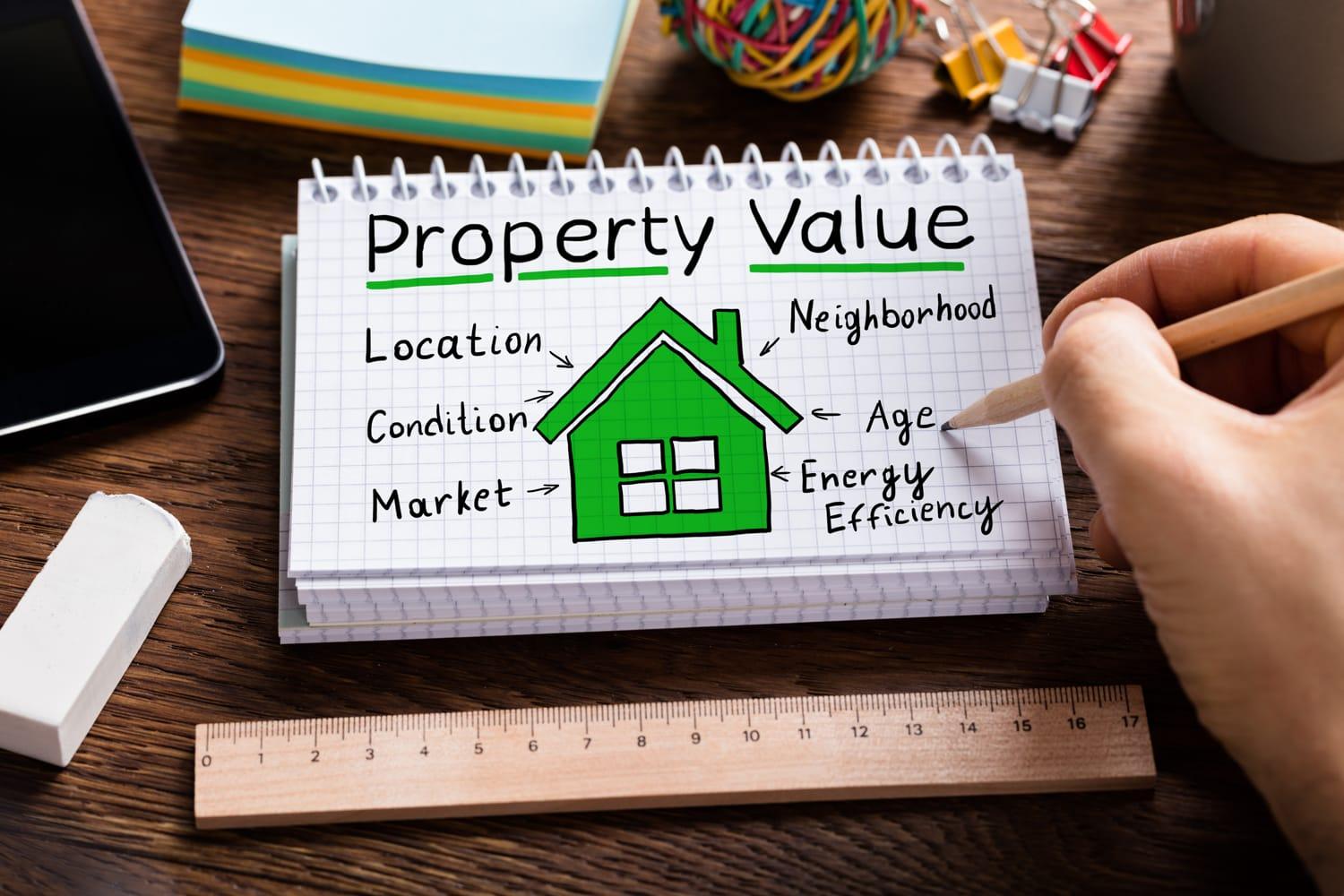
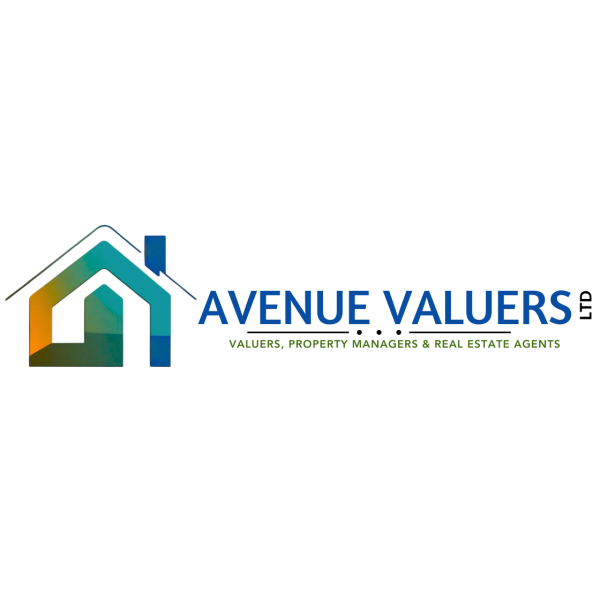
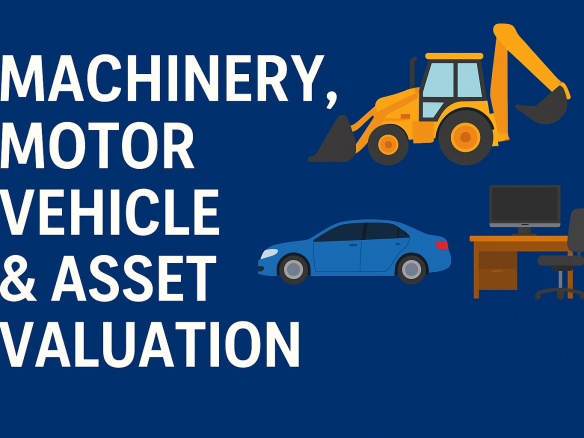

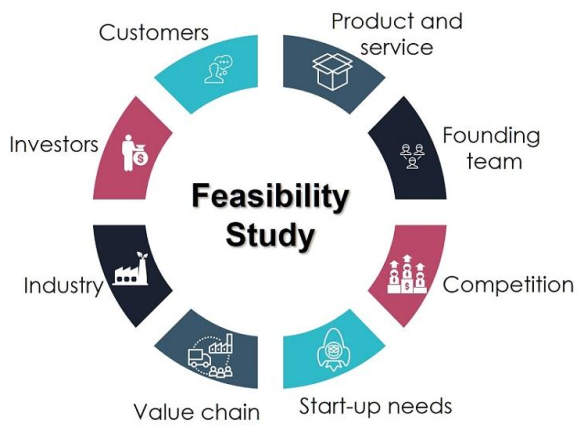
Join The Discussion